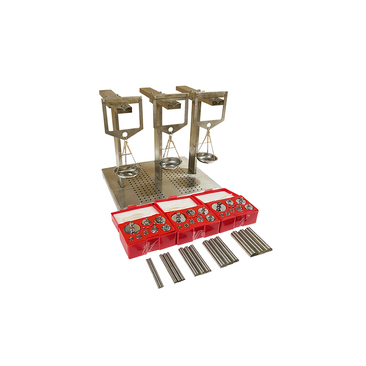china tensile tester
Understanding the Importance of Tensile Testers in Material Testing
In the field of materials science and engineering, the tensile tester is an indispensable instrument. Known for its ability to measure the tensile strength, elongation, and other mechanical properties of materials, it plays a crucial role in various industries, including construction, manufacturing, and research. This article will explore the significance, functionality, and advancements of tensile testers, specifically focusing on developments in China.
What is a Tensile Tester?
A tensile tester, also known as a tensile testing machine or tensile strength tester, is designed to apply a controlled tensile force to a material specimen and measure its response. The primary goal is to determine how a material behaves when subjected to tension until it fractures. The key parameters measured during a tensile test include
1. Tensile Strength The maximum stress a material can withstand while being stretched or pulled before failing. 2. Yield Strength The amount of stress at which a material begins to deform plastically. 3. Elongation The increase in length of the material before rupture, expressed as a percentage of its original length. 4. Modulus of Elasticity A measure of a material’s stiffness or rigidity.
The Role of Tensile Testers in Various Industries
Tensile testers are critical in several sectors
- Construction In the construction industry, materials such as steel and concrete must meet stringent safety standards. Tensile testing ensures that these materials can withstand various forces and loads, contributing to the structural integrity of buildings and bridges. - Manufacturing Manufacturers use tensile testers to select appropriate materials for products ranging from automotive parts to consumer electronics. By ensuring that components can endure necessary stresses, manufacturers reduce the risk of failure in the final products.
- Aerospace The aerospace industry relies heavily on tensile testing to guarantee that materials used in aircraft can withstand extreme conditions. The reliability of materials is essential for safety and performance in aviation.
- Research and Development In R&D settings, tensile testing helps engineers and scientists explore new materials and composite substances, allowing for innovations in product design and functionality.
china tensile tester

Advancements in Tensile Testing Technology
China has emerged as a significant player in the development and production of tensile testers, showcasing advancements that have enhanced the functionality and precision of these machines. Some notable trends and innovations include
1. Automation Modern tensile testers are increasingly automated, allowing for more consistent and repeatable results. This is crucial in high-volume production environments where efficiency is paramount.
2. Computer Integration Many of today’s tensile testers come equipped with advanced software that can analyze the data in real-time, generate stress-strain curves, and even simulate different testing scenarios. This not only speeds up the analysis process but also enhances the accuracy of the measurements.
3. Material Versatility Innovative designs have produced tensile testers that can accommodate a wider range of materials, including polymers, metals, and composites. This flexibility is vital, especially in industries where multiple material types are used simultaneously.
4. Portability With an increase in demand for on-site testing, manufacturers have developed portable tensile testers that still retain high accuracy and reliability. This is particularly beneficial for construction engineers who may need to test materials in remote locations.
Conclusion
Tensile testers are vital for assessing the mechanical properties of materials, providing essential data that influences the design, production, and safety of countless products across various industries. As China continues to innovate and improve tensile testing technologies, the capabilities of these machines will only expand, enabling more precise, efficient, and versatile material testing. The advancements within this field will undoubtedly support the growing demands of industries that prioritize safety and quality, ensuring that materials meet rigorous standards before they are put to use.
In conclusion, the importance of tensile testing cannot be overstated. It not only ensures material reliability but also fosters innovation in product design and development, making it a cornerstone in the manufacturing and engineering landscapes.
-
The Role of Tensile Force Testers in Quality Control and Material Science
NewsAug.01,2025
-
Maintenance and Safety Tips for Aging Ovens
NewsAug.01,2025
-
Density Balance in Forensic Science
NewsAug.01,2025
-
Advanced Optical Measurement Technologies
NewsAug.01,2025
-
A Buyer’s Guide to Tensile Test Machines
NewsAug.01,2025
-
Why the Conductor Resistance Constant Temperature Measurement Machine Redefines Precision
NewsJun.20,2025
 Copyright © 2025 Hebei Fangyuan Instrument & Equipment Co.,Ltd. All Rights Reserved. Sitemap | Privacy Policy
Copyright © 2025 Hebei Fangyuan Instrument & Equipment Co.,Ltd. All Rights Reserved. Sitemap | Privacy Policy
